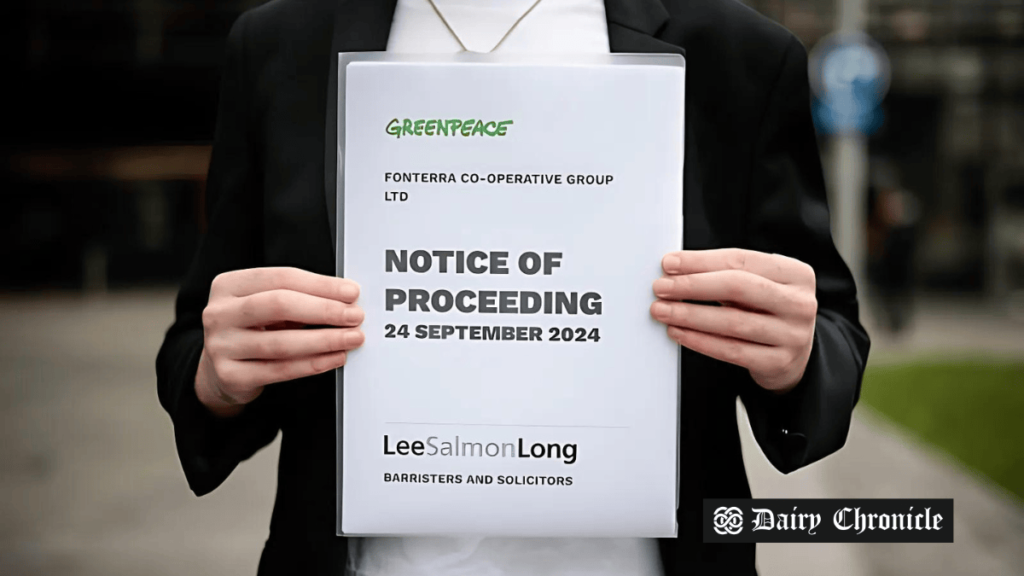Greenpeace Aotearoa has filed a lawsuit against New Zealand’s largest dairy cooperative, Fonterra, alleging the company misleads consumers with claims that its Anchor butter is “100% New Zealand grass-fed.” The lawsuit highlights that up to 20% of the cows’ diet may consist of imported palm kernel, linked to deforestation in Southeast Asia. The case raises concerns about the transparency of dairy practices and environmental impact in the industry.
Greenpeace Aotearoa, the New Zealand branch of the global environmental organization, has filed a lawsuit against Fonterra, the country’s largest dairy cooperative, accusing the company of deceiving consumers by claiming that its Anchor butter is “100% New Zealand grass-fed.” Greenpeace asserts that up to 20% of the cows’ diet in Fonterra’s supply chain consists of imported palm kernel, a product linked to deforestation in Southeast Asia.
The lawsuit was served to Fonterra at its Auckland headquarters, with Greenpeace alleging that the company’s marketing misleads customers about the environmental impact of its products. Sinéad Deighton-O’Flynn, a spokesperson for Greenpeace Aotearoa, said, “Fonterra is misleading their customers through this branding, presumably to make themselves appear more environmentally friendly and sustainable. In reality, they are downplaying their reliance on palm kernel, which is tied to deforestation and habitat destruction.”
Palm kernel, a byproduct of the palm oil industry, is associated with the destruction of rainforests and the loss of wildlife habitats, including those of endangered species like orangutans. Greenpeace pointed out that New Zealand is the world’s largest importer of palm kernel, with the dairy industry bringing in nearly 2 million tonnes annually. Much of this is sold by AgriFeeds, a company that supplies palm kernel to Fonterra-owned Farm Source stores.
In addition to palm kernel, Greenpeace criticized Fonterra’s use of other fodder crops in intensive winter grazing practices, which can leave cows in harsh, muddy conditions. Deighton-O’Flynn added,
“Fonterra is stuck in the past, trying to hide behind greenwash. Many farmers have already ended their use of palm kernel, but Fonterra continues to mislead customers and harm the environment.”
palm kernel, Greenpeace criticized Fonterra’s
Fonterra, which markets itself as a leader in sustainable dairy production, has yet to respond to the lawsuit. The case raises significant concerns about the transparency of dairy industry practices and the environmental impact of palm kernel imports into New Zealand.
This legal action may have broader implications for New Zealand’s dairy industry, particularly for farmers and brands that have shifted to genuinely grass-fed operations, distancing themselves from environmentally harmful practices.



